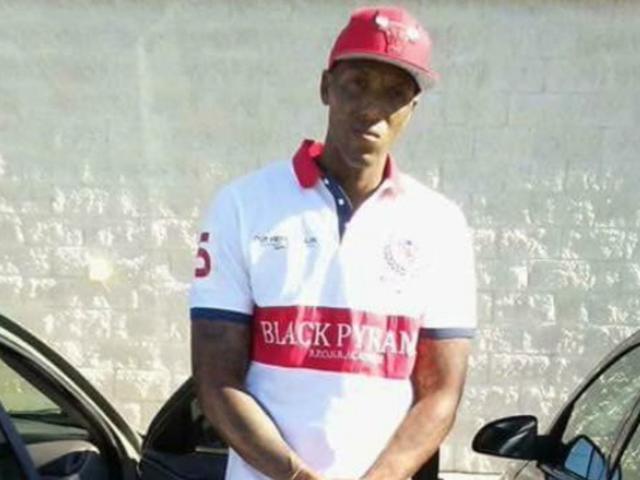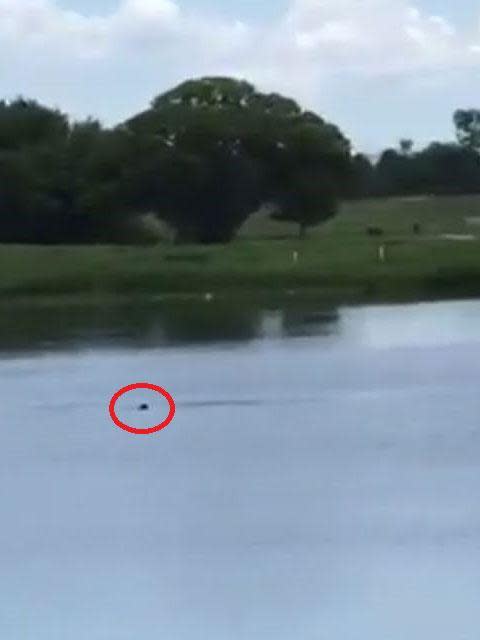
Teenagers who laughed while filming a disabled man as he drowned instead of rescuing him had no legal obligation to help, according to experts.
Police are pursuing misdemeanor charges against the five minors, aged between 14 and 16, for failing to report the death of Jamie Dunn. None of the five have been named.
As the 31-year-old drowned in a Florida pond on 9 July, the five teenagers mocked laughed at and recorded him dying before posting the video online. They ignored Mr. Dunn’s pleas for help.
But there is no general duty under the law to help someone in distress, Supreme Court Justice Anthony Kennedy said in a 2012 legal argument.
“You don’t have the duty to rescue someone if that person is in danger. The blind man is walking in front of a car and you do not have a duty to stop him absent some relation between you …[or] Obamacare.”
At the time, he was arguing against the introduction of the Affordable Care Act, known as Obamacare.
Mr. Kennedy acknowledged that there were “some severe moral criticisms of that rule,” but said, “that’s generally the rule”.
While laws vary between states, there is no general duty to rescue across the US, according to David Weinstein, a former federal prosecutor who is now in private practice.
There are some exceptions, however. For example: if you have put the person in danger in the first place; if the incident is a car crash; if you already have a special relationship to others by being a police officer, firefighter, teacher, bus driver, employer – or the victim’s spouse.
Some states, including Nebraska, also have laws requiring people to report suspected child abuse, Nebraska attorney Jeffrey Lapin told Associated Press. Failure to do so may result in misdemeanor charges.
Mr. Lapin also noted the final episode of sitcom Seinfeld, in which an overweight man is car-jacked. Instead of helping him, the four main characters joke about his weight.
They are subsequently convicted of violating a purported city ordinance for failing to assist, and the judge character says the four have “callous indifference and utter disregard” for a positive society. But most US states do not have such a law.
However, every US state does have a “Good Samaritan” law, to protect people who render aid to someone in danger from being sued for anything they did in the course of their actions – although there are some exceptions.
Countries including Argentina, Brazil, France, Germany, Italy and Russia do have laws requiring witnesses to render aid, which can simply mean calling the authorities.

Jamel’s body was found severely decomposed and floating in the pond in Cocoa, Florida, five days after he drowned. After a family friend informed police of the video, officers identified and interviewed the five teenagers.
They had been smoking marijuana in the park, according to a Cocoa Police Department spokesperson. The group watched Mr Dunn, who used a cane, walk into the fenced-off pond.
In the video, one of the teenagers shouts: “Get out the water, you gonna die.” Another says: “Ain’t nobody fixing to help you, you dumb b***h.”
Another teen asked the group if they were “scared to see a dead person” as a scream is heard in the background. Then another announces “he just died”, before the rest erupt in laughter.
Initially the State Attorney and Cocoa Police concluded no crime had been committed. But on Friday, Cocoa police chief Mike Cantaloupe said he will be pursuing charges of failure to report a death. The State Attorney has not yet decided whether to prosecute the charges.
“When we initially reviewed this case, it was determined there were no laws broken, as the teens were not directly involved with the death,” Mr Cantaloupe said in a statement.
“Further research of the statutes and consultation with the State Attorney’s Office yielded the decision to move forward with charges under this statute. It’s our belief that this law has never been enforced in a scenario like this, but we feel it could be applicable. Pursuing criminal charges is a way to hold them accountable for their own actions.”
Both Mr Cantaloupe and Cocoa’s Mayor, Henry Parrish III, said that Mr Dunn’s death may give rise to new legislation.
“I think what we look at is, the hope that what we do from here going forward, whether it be this charge or some new legislation, that another family doesn’t have to go through this” Mr Cantaloupe told ABC.
“And that we work with our youth ... to instil these morals ... I would’ve never believed that somebody could watch somebody in distress and not do anything about it.
“There are no words to describe how utterly inhumane and cruel the actions of these juveniles were towards Mr Dunn.”
Cocoa Mayor Henry Parrish III said he was dismayed on learning there was no legal obligation to render aid in Florida.
“In a case like this, we struggle to understand how anyone could be so cold and heartless, and then learn that there are no laws in Florida that obligate someone to render aid, or call for someone to render aid, for a person they see in distress,” he said.
“If this case can be used as an example to draft new legislation, then I am committed to move forward to make that happen. More so, may this tragic incident, which has shocked all of us, cause each of us to examine ourselves and our responsibility to one another.”
“I implore the State Attorney’s Office to follow through and file the charges presented by the Cocoa Police Department,” he added.
“While this in no way will bring justice for what occurred, it is a start.”




0 Comments